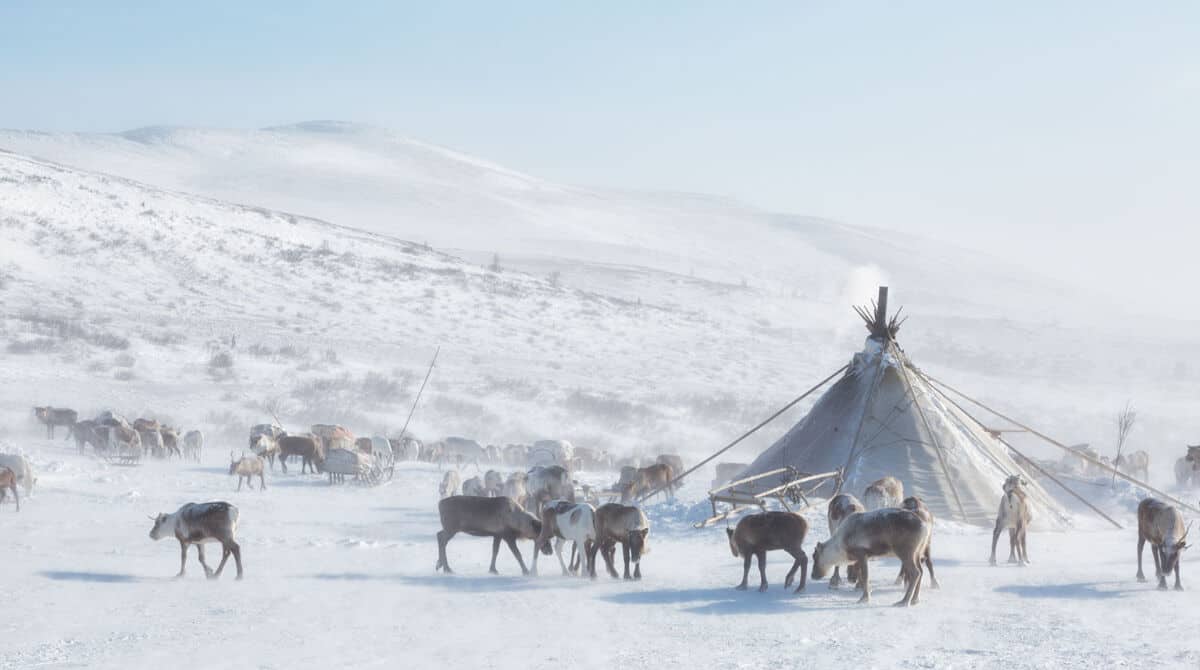Science diplomacy and collaboration, the cornerstones of climate action in the Arctic, are damaged by broken ties with Russia.
The secretariat of the Arctic Council is based in Norway. But the council’s activities have been suspended since the Russia-Ukraine conflict began in early 2022, in part because it’s the Russian Federation that currently holds the rotating presidency until 2023.
That’s meant that critical climate research has been put on hold and communication historically shared between Russia and the other seven Arctic nations has been silenced.
Perhaps even more important is that international science diplomacy, a cornerstone of climate action, has been interrupted by Russia’s aggression and subsequent isolation within the global community. On Wednesday, a group of scientists and editors set out an explanation of the consequences for scientific research because ties with Russia have been broken, at the Arctic Council and beyond.
While the conflict-related loss of human life and the shattered economy take priority, the work published in the journal Nature details how the implications for science (and especially climate science) have wider ripple effects, just as the loss of commodities like Ukrainian wheat or Russian gas affect places far beyond original borders.
Scientists in Russia and the United States are reciprocally cut off from each other. Ukrainian scientists now find themselves supported by partners in Poland. Equipment and other supplies are in short supply because of sanctions. Physics and space projects, in particular, have taken steep financial hits because Russia isn’t contributing.
“It is disastrous,” said a scientist who declined to be identified, for fear of political reprisal. “Everybody is in shock.”
But it’s climate science in the Arctic Circle that’s been stalled at a pivotal moment in the evolving climate emergency, and that affects everyone on the planet. The last Twitter message from the Arctic Council, dated March 1, refers to the Intergovernmental Panel on Climate Change (IPCC) report finding that the Arctic is warming faster than the rest of the planet. The one before that, on February 24, promotes a report on climate adaptation among indigenous peoples of the Arctic.
Although the Arctic Council member nations agreed in June to move forward, they’re still working on what that pathway will mean without Russian expertise. There are five European nations among them—Denmark, Finland, Sweden, Norway and Iceland—as well as the U.S. and Canada.
Some types of projects, such as studies of indigenous herding communities, can continue in a different Arctic nation. Siberian wildfires can still be monitored remotely via satellite. Yet collaborative work can’t be done without Russia’s scientists.
For example, editors writing in a companion Nature piece note that international work on permafrost has been interrupted. While it likely continues in Russia, the data needed to more accurately understand and predict climate change is now out of reach.
“In the face of the war in Ukraine, it might seem tempting to set aside science and climate cooperation for the time being. But that would be short-sighted,” the editorial notes. Russia’s land makes up about half of the Arctic territory, and its role in a community of scientists, funders and policymakers can’t be overstated and needs to be accepted, they said.
“It is unwise — indeed, counterproductive — when regional and bilateral tensions end all science links,” the editors conclude. “This didn’t happen during the Cold War. It hasn’t happened during some of the twentieth and twenty-first centuries’ other conflicts. It must not happen now.”
This story first appeared on Sustainability Times
© 2022 Sustainability Times.
This article is licensed under a Creative Commons Attribution-ShareAlike 4.0 SA International License.












